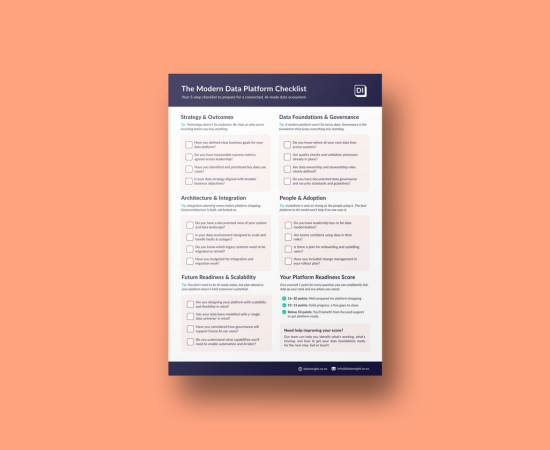97% of New Zealand businesses have fewer than 20 employees.
For most small business owners, that means wearing every hat in the cupboard, from sales and marketing to payroll, customer service, and everything in between.
With no “innovation department” or spare capacity to experiment, new tools can feel out of reach.
That is why AI feels both exciting and intimidating. The promise of doing more with less is huge, but the risk of wasted time or money feels just as real. The truth is, AI is not just for big corporates with big budgets. It is quickly becoming one of the most practical tools small businesses can use to save time, lift efficiency, and unlock growth.
For New Zealand’s SMEs, which make up the vast majority of our economy, the challenge is clear: how to make the most of AI without the luxury of extra time, budget, or dedicated roles.
Why Small Businesses Should Care About AI
AI is not just a buzzword. It has proven capability in saving you and your team significant time. By automating tasks and generating content for reports, proposals, or emails, AI helps you get more done without increasing headcount or costs.
Think about the hours spent each week replying to emails, summarising meeting notes, or pulling together reports. AI can handle that grunt work in minutes. The payoff is more time to focus on growth: winning customers, improving services, and building stronger relationships.
AI saves you time. It saves your team time. Saved time equals saved money. That is the most fundamental benefit.
The next stage of benefits comes when you connect AI to your data and customer touchpoints. Better insights mean better decisions. Better customer experiences mean stronger retention and a sharper value proposition for new customers. At that point, AI is not just cutting costs, it is also growing revenue.
Common Mistakes to Avoid
Small businesses do not have time or money to waste, so avoiding the common pitfalls is key. A few we see often:
- Shadow AI: staff using free tools without oversight. This creates risks around data security and inconsistent outputs.
- Over-reliance on AI: expecting it to magically do everything. Without human review, mistakes creep in quickly.
- Jumping in too big: trying to tackle complex use cases first, only to burn time and budget.
- No policy in place: leaving the team guessing about what is okay and what is not.
Avoiding these traps makes adoption smoother and reduces the chance of a painful (and expensive) misstep.
Where to Start
AI should be treated like any other strategic change in the way you or your organisation operates:
- Align to your strategy: Look at your objectives for the next few years. Do you want to grow faster, improve customer retention, or streamline back-office tasks? Start by matching AI to those goals.
- Create an AI policy: Your team will use AI. To avoid risk and poor outcomes, put guardrails in place that guide safe and effective use. This does not have to be complicated — even a one-page set of do’s and don’ts helps keep everyone aligned. We have a downloadable AI Policy & Checklist template to get you started.
- Adopt AI as a change programme: Treat AI as change, not just tech. Communicate why you are adopting it, provide training, and support your team as they get comfortable. A little upfront effort goes a long way in avoiding pushback later.
- Prove that it works: Do not begin with the hardest, most resource-intensive project. Start small. Maybe that means trialling AI to draft customer emails, summarise survey results, or generate content for social media. Deliver early results, build confidence, and expand from there.
The Payoff for Small Businesses
For small businesses, AI has the potential to help with virtually every aspect of the organisation. That could mean:
- Operational efficiency: automating admin tasks so the owner can spend less time on paperwork.
- Customer insights: analysing sales trends to make smarter stock or pricing decisions.
- Marketing support: creating draft content for campaigns, blogs, or newsletters.
- Team development: upskilling staff with access to AI-enabled tools and resources.
These improvements add up. A few hours saved each week across a small team can translate into significant cost savings, faster growth, and more headspace to focus on the work that matters most.
The Future Is in Your Hands
AI does not have to be overwhelming, and it does not have to be out of reach. The real opportunity lies in starting smart, focusing on quick wins, and building the confidence to scale. With the right guidance, AI can shift from being a buzzword to becoming a trusted teammate, helping you save time, sharpen decision-making, and create real advantages in a crowded market.
If you are ready to cut through the noise and uncover where AI can truly move the needle for your business, let’s talk. The future of work is not just for the big players, it is for the 97%.
Book in for a free AI Discovery Workshop to see how AI could work for your business.








.png)